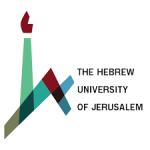Comparing serotyping with whole-genome sequencing for subtyping of non-typhoidal Salmonella enterica: a large-scale analysis of 37 serotypes with a public health impact in the USA
Microbial Genomics publish this investigation article
September 1st, 2020
Serotyping has traditionally been used for subtyping of non-typhoidal Salmonella (NTS) isolates. However, its discriminatory power is limited, which impairs its use for epidemiological investigations of source attribution. Whole-genome sequencing (WGS) analysis allows more accurate subtyping of strains. However, because of the relative newness and cost of routine WGS, large-scale studies involving NTS WGS are still rare. We aimed to revisit the big picture of subtyping NTS with a public health impact by using traditional serotyping (i.e. reaction between antisera and surface antigens) and comparing the results with those obtained using WGS. For this purpose, we analysed 18 282 sequences of isolates belonging to 37 serotypes with a public health impact that were recovered in the USA between 2006 and 2017 from multiple sources, and were available at the National Center for Biotechnology Information (NCBI). Phylogenetic trees were reconstructed for each serotype using the core genome for the identification of genetic subpopulations. We demonstrated that WGS-based subtyping allows better identification of sources potentially linked with human infection and emerging subpopulations, along with providing information on the risk of dissemination of plasmids and acquired antimicrobial resistance genes (AARGs). In addition, by reconstructing a phylogenetic tree with representative isolates from all serotypes (n=370), we demonstrated genetic variability within and between serotypes, which formed monophyletic, polyphyletic and paraphyletic clades. Moreover, we found (in the entire data set) an increased detection rate for AARGs linked to key antimicrobials (such as quinolones and extended-spectrum cephalosporins) over time. The outputs of this large-scale analysis reveal new insights into the genetic diversity within and between serotypes; the polyphyly and paraphyly of certain serotypes may suggest that the subtyping of NTS to serotypes may not be sufficient. Moreover, the results and the methods presented here, leading to differentiation between genetic subpopulations based on their potential risk to public health, as well as narrowing down the possible sources of these infections, may be used as a baseline for subtyping of future NTS infections and help efforts to mitigate and prevent infections in the USA and globally
Elnekave E., Hong SL., Lim S., Johnson TJ., Perez AM. and Alvarez J..
 | The Robert H. Smith Faculty of Agriculture. Food and Environment Sciences. The Hebrew University of Jerusalem. |
| Department of Veterinary Population Medicine. Department of Veterinary and Biomedical Sciences. College of Veterinary Medicine. University of Minnesota (UMM). | |
| Department of Microbiology and Immunology. Rega Institute. K.U. Leuven (Universidad Católica de Lovaina). | |
| Bioinformatics and Computational Biology Program. University of Minnesota (UMM). | |
 | Departamento de Sanidad Animal. Facultad de Veterinaria. Universidad Complutense (UCM). |
 | Centro de Vigilancia Sanitaria Veterinaria (VISAVET). Universidad Complutense (UCM). |

